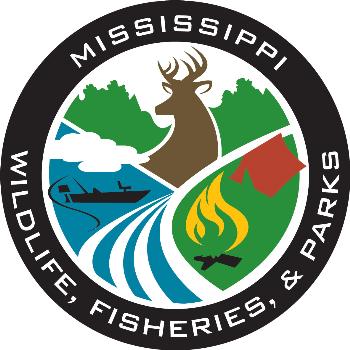Economic Impacts of the White-Tailed Deer in
Mississippi
Principal Investigators
Dr. Stephen C. Grado
Mississippi State University Department of Forestry
Dr. Kevin M. Hunt
Mississippi State University Department of Wildlife and Fisheries
Dr. Ian A. Munn
Mississippi State University Department of Forestry
Dr. Ben C. West
Mississippi State University Department of Wildlife and Fisheries
Dr. Stephen Demarais
Mississippi State University Department of Wildlife and Fisheries
David Godwin
Mississippi Department of Wildlife, Fisheries, and Parks
Graduate Research Assistants
Micah W. Whiteside
Mississippi State University Department of Forestry
White-tailed deer are an important natural, cultural, and economic resource in Mississippi. Management of white-tailed deer is especially relevant to recreational hunting. In 1996, 433,000 hunters spent 8.3 million recreational days in Mississippi, a major increase since 1991. More importantly, about one third of these hunters were from out-of-state and their trip-related expenses exceeded $75.6 million. In addition, residents' hunting trip-related expenses exceeded $501.5 million in 1996.
There have been a number of studies valuing white-tailed deer and deer hunting throughout the United States. While this data is useful, specific economic impacts have not been examined within Mississippi to quantify the nature and extent of the white-tailed deer as it impacts state, regional, and local economies. Furthermore, a number of studies have assessed the benefits and economic impacts of wildlife species in Mississippi, such as the wild turkey, northern bobwhite, and waterfowl, yet there has never been a scientifically based economic impact assessment of the white-tailed deer in Mississippi. It can be hypothesized that the direct and indirect benefits from this species may equal or exceed the impacts from all other species in the state based on expenditure data. Therefore, proper management of the white-tailed deer should be of utmost importance to the Mississippi Department of Wildlife, Fisheries, and Parks and the economy due to the potential size of its contribution to state revenues relative to other species.
While biological concerns have always been paramount, economic assessments of the white-tailed deer are going to become equally important in the future. This information is useful because it lends relative importance to the white-tailed deer in terms of assessing and prioritizing management decisions and land use polices that might affect this valuable resource and the businesses and industries that depend on it. For example, with problems such as Chronic Wasting Disease and other wildlife diseases potentially on the horizon, resource managers need sound economic assessments to make their case for funds to adequately combat problems that could seriously impact the resource and the economy.
Project results will be used to develop strategies to increase positive economic values of deer in Mississippi. Quantifying total employment, income, value added, tax generation, and total sales will allow natural resource managers, land use planners, and policy makers to estimate benefits accrued from various land management options. On this basis, funding for white-tailed deer management can be justified from both a biological and economic standpoint. The information will also be useful for establishing marketing and policy strategies. These measures can be used to garner legislative support for funding initiatives to address specific study areas for the resource. Efforts to secure policies or funding can then be targeted to the most salient issues.
Full Report on Research Accomplishments To Date
Southeastern Association of Fish and Wildlife Agencies Article
Funding for this project was provided by:
 |
 |
 |
 |









